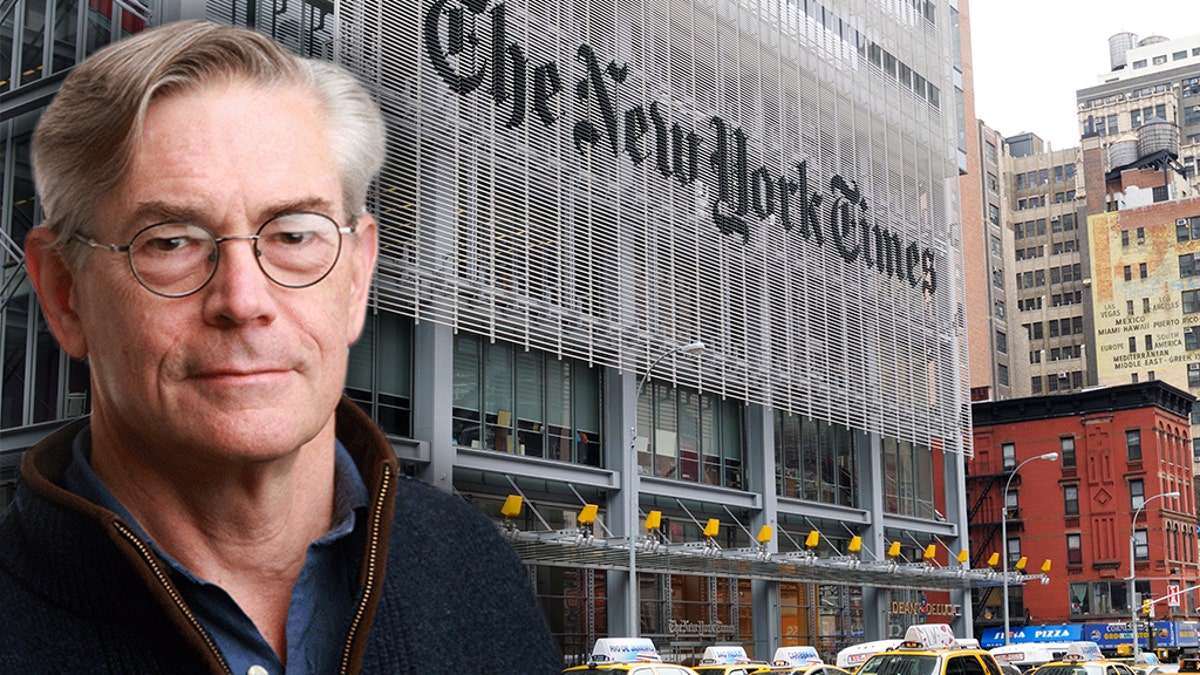Concha: The New York Times is 'lionizing cancel culture'
Fox News contributor Joe Concha reacts to The New York Times being accused of celebrating cancel culture for spotlighting a video of a teenaged girl using a racial slur, in which, led to her being forced to withdraw from college.
Former New York Times reporter Donald McNeil Jr., who was recently ousted from the Gray Lady over using the "n-word" during a paper-sponsored trip in 2019, accused the paper’s management of panicking and botching the situation and attacked other media outlets for misleading coverage on Monday in a lengthy series of essays.
McNeil also shared an old email to a former colleague in which he said the Times environment had become a "spiteful" place and one of its senior leaders was turning the newsroom into "North Korea."
McNeil announced his resignation last month, shortly after The Daily Beast reported that he had been reprimanded by the Times over complaints the paper received from students on the trip to Peru. They alleged that the veteran science reporter used offensive rhetoric, including the "n-word."
McNeil wrote a lengthy Medium blog detailing his side of the story, noting that he decided to pen his explanation to avoid being misquoted by a "jackal" journalist, as he claimed The Washington Post had recently done. He called Times in-house media columnist Ben Smith’s coverage of his ouster "ridiculously inaccurate" and said The Daily Beast's initial story on his rhetoric was also inaccurate.
NY TIMES SAYS REPORTER 'WENT TOO FAR' DURING TV APPEARANCE BLASTING TRUMP ADMIN'S VIRUS RESPONSE

Donald McNeil was the New York Times' longtime science reporter and was one of the star journalists covering the coronavirus pandemic.
McNeil criticized the Times management for the way it handled the ordeal, while insisting that he is not an "a--hole" despite his crusty style and tendency to lash out at editors for over-correcting his stories. He apologized to any Times editors that he had spats with over the years before diving into his exit from the paper.
At one point, he pondeed who leaked the story that would derail his career to the Daily Beast.
"The answer is: I have no idea. The story includes a quote from an internal Times email, so I must assume it leaked from inside," he wrote.
McNeil expressed shock that colleagues were so quick to stab him in the back and accept claims that he is racist.
"Some of today’s woke youth eager to ‘correct’ us greybeards have no idea how normal it once was in America to slip into racism," he wrote.
McNeil called the events leading to his ouster "a series of misunderstandings and blunders" and maintained he genuinely loves the Times and its mission.
McNeil said that associate managing editor for employee relations Charlotte Behrendt insisted the paper should work with the Daily Beast and provide a comment, despite McNeil urging Times honchos to ignore it. McNeil said he was forced to apologize, so he wrote a lengthy statement for the Daily Beast that explained the context behind his use of the word in the context of anwering a student's question about whether another student should have been reprimanded over using it in a joking context.
"If the Times had not panicked and I had been allowed to send some version of that, perhaps the Beast would have rewritten or even spiked its story," he wrote. "Corporate Communications rejected my words."
McNeil said he objected to the Times PR team's because it made it appear he targeted someone with a racial slur when he did not. He added that he rejected other suggestions from the Times before finally reaching out to executive editor Dean Baquet, whom McNeil urged to enlist someone other than Behrendt to handle the matter, citing a conflict of interest from feuds the duo have had in the past related to the paper’s union.
Eventually the Daily Beast story came out and Times management focused on damage control because many took his refusal to comment to the Daily Beast as a refusal to apologize.
"Top management had met by Zoom with black reporters. There were department-by-department Zoom meetings about it. Slack channels were aflame, which I didn’t know because I avoid Slack unless I’m forced to use it. The Guild held an emergency meeting of its unit council. I was on the council, but I don’t know if I was invited since those messages go to a non-Times email I sometimes forget to check for days," McNeil wrote. "Word that ‘McNeil refused to apologize’ had spread."
McNeil explained that he was then asked to step down because he didn’t apologize, despite claiming that he had apologized in his unused statement.
"Dean said, ‘you’ve lost the newsroom. A lot of your colleagues are hurt. A lot of them won’t work with you. Thank you for writing the apology. But we’d like you to consider adding to it that you’re leaving,’" McNeil wrote.
He felt that Baquet attempted to intimidate him into leaving the job because he "lost" the newsroom.
"The conversation then trailed to an end, with them saying ‘consider it’ and me saying no," McNeil wrote.
McNeil also shared an August 2019 email he wrote to Jan Benzel, the retired Times editor who recruited reporters for the paid trips, where he said Behrendt was making the Times newsroom "more like North Korea every day."
"I used to love working here," McNeil wrote in the email at the time. "Now I’m so discouraged. Such a mean, spiteful, vengeful place where everyone is looking over his/her shoulder."
McNeil hired an attorney and eventually stepped down. He added Behrendt used the n-word herself during the investigation in the company of a Black colleague.
McNeil was the Times' longtime science reporter and one of the star journalists covering the coronavirus pandemic. He had worked for the Gray Lady since 1976.
CLICK HERE TO GET THE FOX NEWS APP
In the end, McNeil came off perplexed that "sensitive teenagers" had brought an end to his career.
"Obviously, I badly misjudged my audience in Peru that year. I thought I was generally arguing in favor of open-mindedness and tolerance — but it clearly didn’t come across that way. And my bristliness makes me an imperfect pedagogue for sensitive teenagers. Although the students liked me in 2018, some of those in 2019 clearly detested me. I do not see why their complaints should have ended my career at the Times two years later. But they did," he wrote. "And now I’d like to put this behind me. I had hoped to be remembered as a good science reporter whose work saved lives. Not for this."
Fox News’ Joseph A. Wulfsohn contributed to this report.


